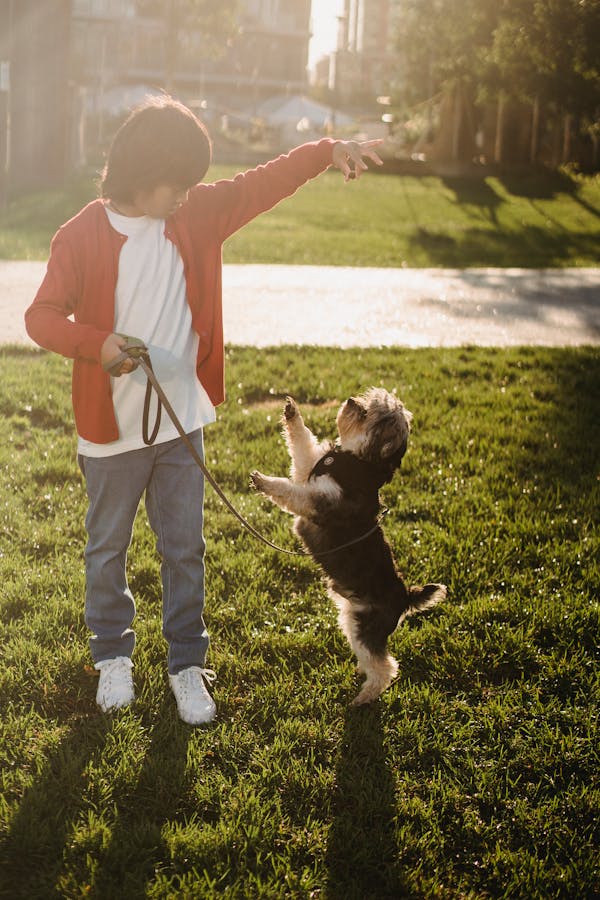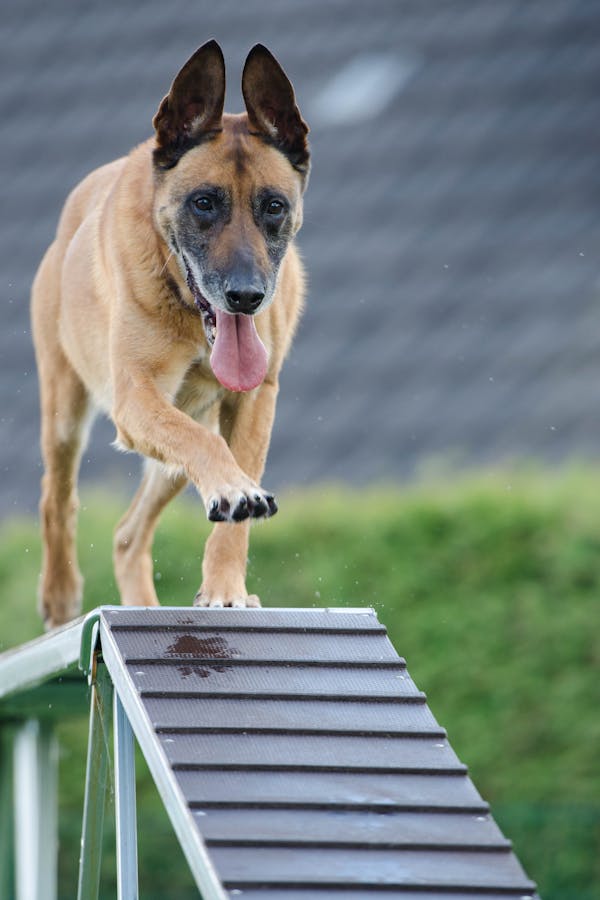
When people choose a dog, they often look at the breed and assume it will determine the dog’s behavior.
For instance, Labrador Retrievers are usually viewed as friendly and great with families, while Pit Bulls might be seen as aggressive.
But how accurate are these assumptions?
Is a dog’s behavior really shaped by its breed, or do training, environment, and individual personality play a bigger role?
By exploring the balance between nature and nurture, pet owners can make better choices and raise happy, well-behaved dogs.
Genetic Influence on Canine Behavior
Genetics definitely plays a significant role in shaping a dog’s behavior.
Over many years, different breeds were developed for specific tasks, such as herding, hunting, or guarding, and these jobs required certain traits that were passed down through generations.
Here’s how it breaks down:
Herding breeds
Breeds like Border Collies and Australian Shepherds have a natural instinct to herd and control livestock.
This instinct can also lead them to chase or try to herd other animals, children, or even adults.
Guarding breeds
Dogs such as German Shepherds and Rottweilers were bred to guard property and protect their owners.
Because of this, they often have a strong protective instinct, which can make them more alert and sometimes territorial.
Sporting breeds
Breeds like Labrador Retrievers and Spaniels were originally bred for retrieving game.
They tend to have a playful and friendly nature, making them great companions for families and active individuals.
A study in 2019 confirmed that certain genetic factors are linked to breed-specific behaviors, such as trainability, aggression, and sociability.
However, while genetics lay the foundation for behavior, they are not the only determining factor.

The Impact of Environment
While genetics do play a role in shaping a dog’s behavior, the environment in which a dog is raised is equally important.
Socialization matters
Dogs that are well-socialized—meaning they have good interactions with people, other animals, and different settings—tend to be friendlier and more adaptable.
This is true for all breeds.
Proper socialization helps dogs feel comfortable and confident in various situations.
Negative environments can harm
Dogs raised in stressful or neglectful conditions may develop behaviors such as aggression or anxiety.
A study in the Journal of Veterinary Behavior found that dogs with negative early experiences often show higher levels of anxiety and fear-based aggression.
This shows that a poor environment can have lasting effects on a dog’s temperament.
Positive environments promote good behavior
On the flip side, an environment filled with love, consistent training, and exposure to different experiences can greatly influence a dog’s behavior in a positive way.
In many cases, these supportive factors can even help a dog overcome any negative traits that might come from their genetics.
The Influence of Individual Temperament
Just like humans, dogs each have their own distinct personalities that influence how they respond to their surroundings and training.
Here’s a closer look at the key points about canine temperament:
Unique personalities
Every dog is an individual, and their personalities can vary significantly, even among the same breed.
For instance, some German Shepherds may be calm and gentle, while others may be energetic and protective.
This diversity means that not all dogs of the same breed will behave in the same way.
Blend of factors
A dog’s temperament is influenced by a combination of genetics and early experiences.
While certain traits may be common in a breed, a dog’s upbringing and environment play a crucial role in shaping its personality.
This means that two dogs from the same breed can behave very differently depending on their backgrounds.
Impact of socialization
Socialization is key to a dog’s development.
A naturally shy dog who receives patience and positive social experiences can become more confident over time.
Supportive interactions with people and other animals help these dogs feel secure, allowing their true personalities to shine through.
Environmental effects
On the flip side, an outgoing dog might develop aggressive behaviors if it encounters stressful or hostile situations.
Negative experiences can lead to fear or aggression, even in dogs that are usually friendly.
It’s important to recognize that a dog’s behavior can be heavily influenced by its environment and experiences.

Scientific Studies Investigating Breed-Specific Traits
Scientific research has delved into the question of whether breed determines behavior.
While some studies suggest that certain traits, like aggression or playfulness, are more common in specific breeds, the overall consensus is that behavior is highly individual and influenced by multiple factors.
A 2022 study published in Science examined the genetic and environmental influences on dog behavior across thousands of dogs.
The study concluded that, while there are some behavioral tendencies associated with breeds, such as Retrievers being more social, these tendencies account for less than 9% of behavior variation.
In other words, while breed can provide clues, it is not a reliable predictor of a dog’s behavior.
Other research has focused on aggression in specific breeds, such as Pit Bulls or Rottweilers.
However, the findings suggest that aggression is more likely tied to environmental factors, such as poor socialization, neglect, or abuse, rather than breed alone.
This emphasizes that any dog, regardless of breed, can develop behavioral problems if not properly trained and socialized.
Practical Applications for Pet Owners
Understanding that a dog’s breed isn’t the only factor in shaping its behavior is important for any pet owner.
Here are some practical tips to help you raise a well-behaved and happy dog:
Focus on socialization
No matter the breed, early and consistent socialization is crucial.
This means introducing your dog to a variety of people, animals, and environments.
The more experiences your dog has, the more adaptable and friendly they’ll become.
Positive interactions help your dog feel comfortable in different situations, reducing anxiety and fear.
Training matters
Using positive reinforcement training is key to teaching your dog what behaviors are acceptable.
This approach rewards good behavior with treats, praise, or play, which helps build trust between you and your dog.
Consistency is essential; using the same commands and rules will help your dog understand what you expect from them.
Consider individual needs
While breed traits can give you some clues about your dog’s behavior, it’s important to remember that every dog is unique.
Some dogs might need more exercise, mental challenges, or attention than others.
Taking the time to understand your dog’s specific needs will lead to a happier, healthier, and more balanced pet.

Final Thoughts
The debate over whether a dog’s breed or its training determines behavior is complex.
While genetic factors do play a role in shaping certain tendencies, they are not the sole determinant of behavior.
A dog’s environment, individual temperament, and the efforts made by its owner in terms of training and socialization are just as—if not more—important.
Ultimately, understanding that every dog is unique and requires specific attention is crucial.
By focusing on positive reinforcement, consistent socialization, and meeting your dog’s individual needs, you can help shape a well-behaved, loving pet, regardless of its breed.
- Does Cat Litter Melt Ice? The Complete Guide to Winter Safety - January 30, 2026
- Happy Tail Dogs: Understanding This Common Canine Condition - January 29, 2026
- How Cold Can Outdoor Cats Handle? Feline Winter Safety - January 27, 2026


GIPHY App Key not set. Please check settings